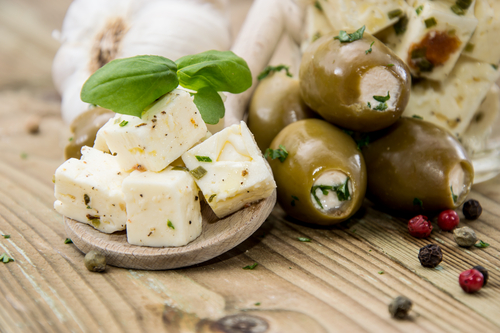
Greek cuisine uses some flavorings more often than other Mediterranean cuisines do, namely: oregano, mint, garlic, onion, dill and bay laurel leaves. Other common herbs and spices include basil, thyme and fennel seed. Persillade is also used as a garnish on some dishes.Staples of the Greek diet include olives (and olive oil), eggplant, cucumbers, tomatoes, spinach, lentils, and other types of beans, lemons, nuts, honey, yogurt, feta cheese, eggs, fish, chicken, and lamb.
Too much refinement is generally considered to be against the hearty spirit of the Greek cuisine, though recent trends among Greek culinary circles tend to favour a somewhat more refined approach.Ancient Greek cuisine was characterized by its frugality and was founded on the "Mediterranean triad": wheat, olive oil, and wine, with meat being rarely eaten and fish being more common.
Wine and olive oil have always been a central part of it and the spread of grapes and olive trees in the Mediterranean and further afield is correlated with Greek colonization.
Also, a big part of the Greek Cuisine are seeds and nuts. Seeds and nuts are included in everything from pastry to main dishes.